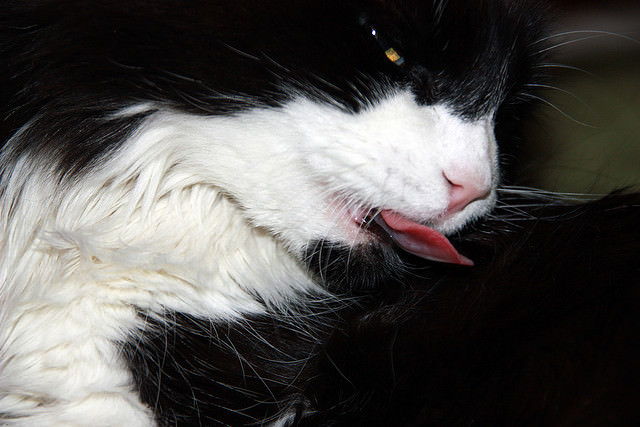
It’s that time of year again. Kitty is shedding and that means increased chance of hairballs. In honor of Hairball Awareness day on April 26th (Yup, that’s a thing), we have some great information on natural ways to keep kitting from coughing up fur.
I have a shorthair – Is my kitty at risk?
“All cats can get hairballs,” says Dr. Dr. Ann Hohenhaus, staff doctor at the Animal Medical Center in NYC. “Cats swallow hair as a normal part of grooming behavior. Normally the hair passes out in the feces, but sometimes the hair accumulates in the intestinal tract and forms a hairball. If it is in the stomach cat families may find vomit with hair in it.”
“Conditions that cause excessive shedding may be related to the formation of hairballs,” she continues. “For example hyperthyroidism is often linked to increased shedding in cats. Both my patients in the blogs (below) were on chemotherapy. I don’t know if it played a role, but it certainly could have.”
You can read about her two patients here and here.
The Dangers
You may think it doesn’t really matter if your cat throws up some hair, aside from being irritating to clean off the carpet. However, Dr. Hohenhaus explains that hairballs can be dangerous.
“The real danger in hairballs is the potential for intestinal obstruction – a blockage of the intestine by a wad of hair that is stuck and requires emergency surgery to remove,” she says. “If an obstruction occurs and is not corrected, intestinal perforation can result.”
If you see any of the following signs provided by Dr. Hohenhaus, take your cat to the vet:
- Vomiting is a good reason to take your cat to the vet. Yes, hairballs cause vomiting, but so do a whole host of much worse diseases like kidney disease, inflammatory bowel disease, lymphoma. So a vomiting cat should always be seen by a veterinarian.
- Weight loss
- If your cat has mats in her fur, that suggests she is not feeling well enough to groom herself. It might be hairballs, but definitely a trip to the vet is necessary. Clipping mats can be tricky and I have sutured up more than one cat cut by their owner’s attempt to remove mats.
Treatment
It’s important to note there is no prescription medication you can give a cat to prevent hairballs.
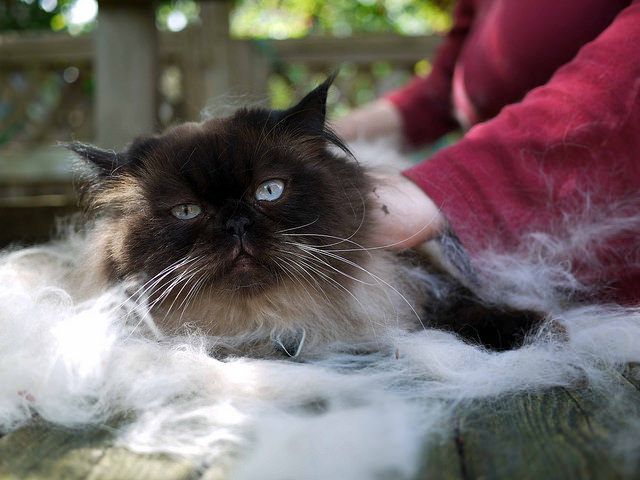
“There is no ‘medication’ for treating hairballs,” says Dr. Hohenhaus. “Elbow grease- definitely natural, is one of the best treatments! That means you need to brush your cat to remove dead hair before it jams up in the intestine. You need the right grooming tool, one that removes the dead hair from all layers of the coat, not just smoothes over the top hairs. Not all cats like brushing so start early with your kitten and teach them to be brushed. In some cats, recalcitrant to brushing, must be clipped to reduce the hair intake during grooming.”
Dr. Hohenhaus adds that the most commonly used products contain flavored petroleum jelly, cod liver oil, flax seed oil or beeswax. In addition, she mentioned a cat food with higher fiber can limit hairball formation.
Products
Here are a few all-natural products that treat hairballs that do not contain petroleum, which some holistic vets believe can have a negative effect on your cat’s immune system. (note: there were not recommended specifically by Dr. Hohenhaus).
Only Natural Pet Laxa-Herb Herbal Formula – An herbal tincture formulated to act as a laxative and hairball remedy for overnight relief of constipation. Designed to stimulate the muscles in the digestive tract without gripping or discomfort.
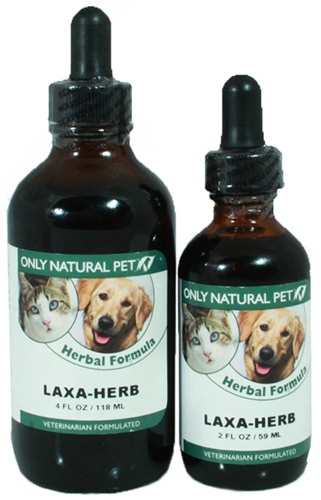
LICKS Cat Hairball Supplement – designed to give your cat hairball relief and promote a healthy skin and coat.
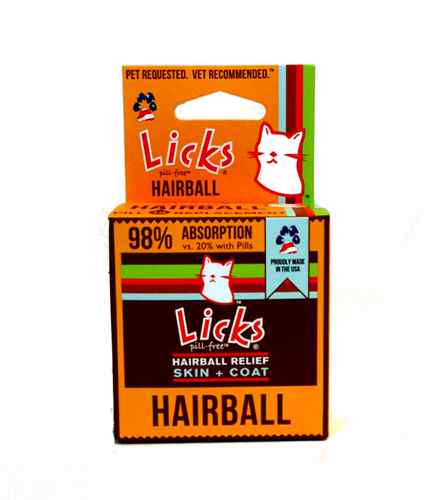
Only Natural Pet Hairball Chewables – contains nutrients to support skin and digestive health.
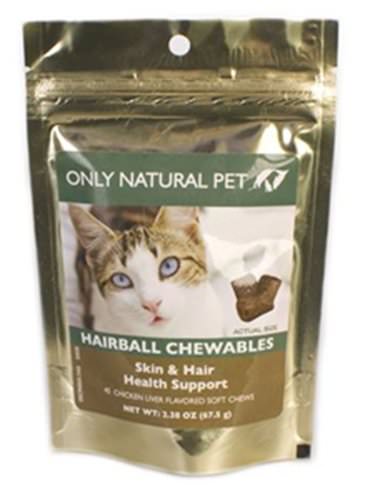
Nutiva Organic Coconut Oil – can help eliminate hairballs and coughing.

About the Author
Based in Wilsonville, Ore., animal lover Kristina N. Lotz is a Certified Professional Dog Trainer – Knowledge Assessed (CPDT-KA) and a member of the Dog Writers Association of America. She is the founder of A Fairytail House. In her spare time, she trains and competes in a variety of performance events with her Shetland Sheepdogs and caters to her two rescue kitties. She smartly married a Veterinary Technician, who helps keep the fur kids happy and healthy, and provides a quick resource for articles.
